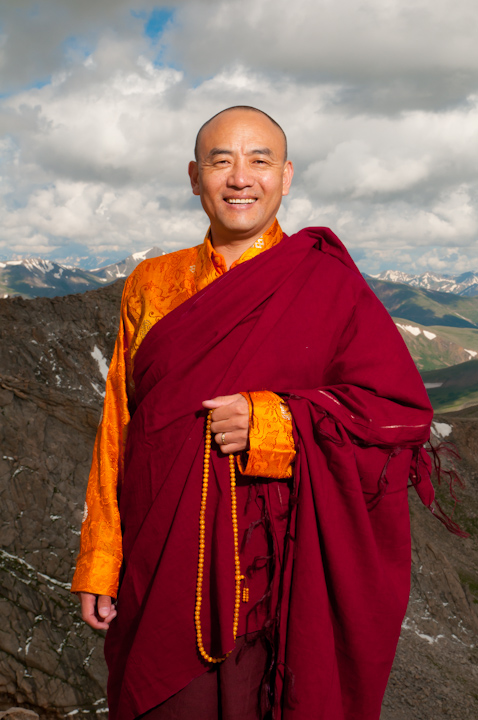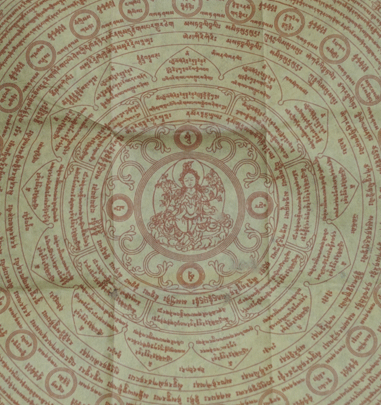
Credit: http://www.orgyenkhamdroling.org
In Tibetan Buddhist tradition, the practice of phowa (pronounced po-wa) is a sacred form of meditation designed to prepare your consciousness to transcend your body after death. Like mantram singing, phowa is a lifelong endeavor that can be picked up at any time. Phowa can be practiced by an individual, or it can be performed by someone else on behalf of a person who may be terminally ill or dying. Regardless of who performs the phowa, the end goal is to help the consciousness achieve enlightenment and end the rebirth cycle.
In this way, practicing and studying phowa leads to the purification of the consciousness
Practicing phowa is known as the means of following the ‘path to liberation’ when all of the nine gates of the world are closed and the gate to nirvana is opened. In the Buddhist tantra, it is said of phowa that “Even if a man is so sinful that he kills a holy man every day and has committed the five Heavy Sins, if he goes on this path of Phowa the veils of sin will not remain.” In this way, practicing and studying phowa leads to the purification of the consciousness. For those that are close to death, phowa is especially important in providing release from worldly attachments that can hold the spirit back from true transcendence.
While not all practitioners of phowa will immediately achieve nirvana, every little bit will eventually lead to ultimate liberation.
The beauty in phowa is that because it is designed to purify the spirit, even the smallest prayer can help lead the way to enlightenment. While not all practitioners of phowa will immediately achieve nirvana, every little bit will eventually lead to ultimate liberation. This is why the best results from phowa come from lifelong practice as a means of not only preparing for death but also for purifying the spirit of negativity and helping with physical and emotional healing in life.
While there are many ways to practice phowa, at its heart, there are at least four core concepts:

Credit: http://www.phowafoundation.org
-
Invocation. You must begin by getting into a comfortable meditative position. As you invoke the sky, you must call out to whatever form of truth you believe in, be it a saint, a buddha or whomever you feel embodies the true meaning of wisdom and compassion.
-
Calling out. At this stage, you must acknowledge the areas of yourself that you are trying to purify. Once you recognize the areas of your spirit that need healing, you must call out to your divine presence to ask for guidance.
-
Receiving the blessing. Once you have made a plea to your divine guide, you must then visualize his or her acceptance. In this stage, your guide will fill you with his or her unconditional love, his or her unyielding light and his or her healing energy.
-
Dedicating your phowa. As you remain in a state of oneness with your guide, conclude your prayer with a vow to share the merit of his or her blessings and wisdom with all beings.
In the western world, the practice of Buddhist meditation is more commonly performed by the individual rather than monks that are acting upon our behalf. However, as Buddhism grows, more opportunities, like the ones presented in the Phowa Foundation, are allowing westerners to get in touch with prominent monks that have dedicated their lives to helping others obtain enlightenment. But regardless of how phowa, or other Buddhist prayers, are performed, the common goal of bringing peace to those in need remains at the heart of connecting us all to one another.
Related SevenPonds Articles:

 Unlocking the Tibetan Practice of Phowa
Unlocking the Tibetan Practice of Phowa


 “Help Me, Helen”
“Help Me, Helen”
 Recovering Cremation Remains After the Los Angeles Fires
Recovering Cremation Remains After the Los Angeles Fires
 “As Tears Go By” by Marianne Faithfull
“As Tears Go By” by Marianne Faithfull














